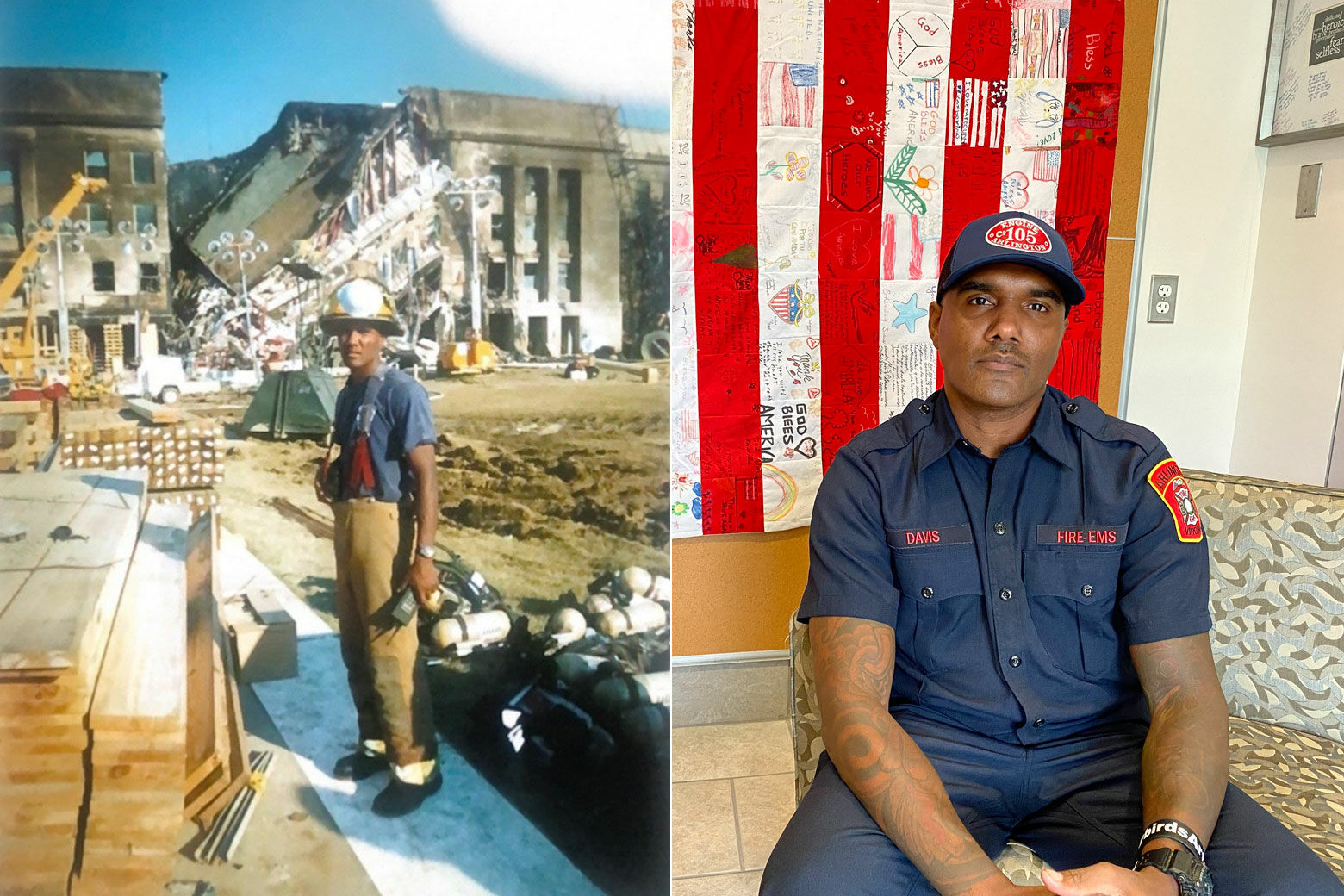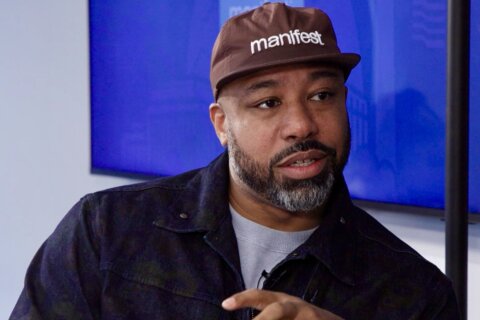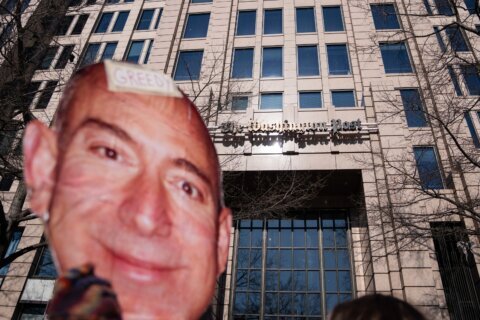
Arlington County firefighter Matthew Herrera was racing to a call for an apartment fire in Rosslyn, Virginia, 20 years ago, when his crew was rerouted. Their new destination: the Pentagon, for a report of a plane down in the area.
It was Sept. 11, 2001.
Herrera, now a captain, struggled to get through piles of debris inside the building, right where the plane had hit, to fight the blaze.
“The first time I fell, I got up real quick and I remember (thinking), ‘I hope I’m not stepping on somebody.’ And I knew that I probably was,” Herrera told WTOP.
Jaleel Davis was off-duty that day, but reported to his firehouse after seeing news of the Pentagon plane crash on television. The fire trucks had departed, but he hitched a ride to the Pentagon in a volunteer firefighter’s pickup.
“I do remember the bodies,” Davis said. “I actually remember seeing feet still in shoes that weren’t attached to anything.”
D.C. Fire and EMS Chief John Donnelly was a sergeant with the department that day. He was also off-duty and heard of the first plane hitting the World Trade Center on WTOP.
As the situation unfolded, he went home, packed five days’ worth of clothes, dropped his daughter off at a neighbor’s house and went into work, helping to send a rescue squad to the Pentagon and then running logistics for the department.
D.C. Assistant Chief Craig Baker, then a captain, was out of town, in terrorism-response training. He arrived in a classroom to see images of the World Trade Center on fire.
“There were actually people — I think including myself — that were opening up books, starting to take notes, because we thought it was going to be an exercise,” Baker said. “And the instructors realized that, and they finally told us, ‘Look, this is not part of class — this is a live news feed; this is actually happening at this time.’”
- Echoes from 9/11 grow louder as future threats emerge
- The three men who guided millions of Americans through the day’s horrors
- US to review 9/11 records with eye toward making more public
- Teaching Sept. 11 as history: ‘We could do a better job’
- How events such as Sept. 11 have affected our collective mental health
Davis said he’s still processing the events at the Pentagon nearly two decades later. Even now, “If a building is being demolished or torn down, when it’s under deconstruction, that triggers me back to the Pentagon.”
“Everybody obviously has their own way” of processing the events, said Herrera. “I’ve never struggled with anything that affected my ability to function or continue to do my work. I just take it and appreciate it for what it is and how it’s impacted me, and make sure that I look at it and say, ‘OK; well, that was that, and I’m going to move on.’”
Donnelly said that day shifted first responders’ mindsets: “Understanding that the terrorist attack brings other things to us and other hazards, like a bigger fire, or at an unexpected place. We shouldn’t have big fires in high-rises in this country, or at the Pentagon, but we did.”
He said other changes have paid off, especially improved communication and more intelligence sharing between agencies.
“On Jan. 6, for instance, we were mobilized,” Donnelly said. “We have the tools and we’re using them.”
Baker agreed.
“I think where we saw the biggest change was the coordination and communication and the willingness to share and plan in advance among all different types of agencies, especially law enforcement,” he said.
“It was vital to us feeling confident that we were prepared and understood the threats that we were challenged with, and you’ve got to have that confidence in order to place your members in harm’s way, right?”








